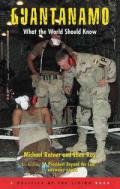| Summary |
The War on Terror is an ongoing battle against a vast array of terrorist organizations, both domestically and internationally. Since the terrorist attacks of September 11, 2001, the US government has employed a number of tactics to combat its enemies, including lawful use of force, targeted killing, and enhanced interrogation. This article examines the legal foundations of the War on Terror and examines various strategies employed by the US to combat terrorism.
The US has taken the global lead in the War on Terror, relying on both international and domestic laws to justify its actions. On the international level, the US has leaned heavily on the Authorization for Use of Military Force (AUMF) and United Nations Security Council Resolution (UNSCR). Under the AUMF, the US can use all necessary and appropriate force against any entity it believes was involved in the 9/11 attacks or harboring any entities associated with the terrorist attack. The UNSCR provides a legal basis for global counterterrorism efforts and includes sanctions against countries that support terrorism.
Domestically, the US has employed a variety of tactics to combat terrorism. Law enforcement agencies, such as the Federal Bureau of Investigation (FBI), have been put at the forefront of the fight. The FBI utilizes surveillance and legal tools, such as the Patriot Act, to investigate potential terrorist threats. The US has also embraced a strategy of targeted killings, using covert operations and drones to eliminate key figures in terror networks. The US has employed various forms of enhanced interrogation techniques, such as waterboarding, despite their legal and ethical implications.
The US has also utilized economic and diplomatic means to combat terrorism, such as economic sanctions, trade embargoes, and other coercive diplomatic measures. Finally, the US has engaged in a number of ideological battles, as it has sought to delegitimize terrorist groups by promoting counter-narratives and attempting to discredit the ideology of its enemies.
The War on Terror is a complex and multi-faceted endeavor, requiring an array of legal and diplomatic strategies to succeed. The US has employed a wide range of tactics to combat terrorists, from lawful use of force to enhanced interrogation to diplomatic sanctions. Despite the legal and ethical implications of some of these tactics, the US has continued to employ them in the global fight against terrorism.
The War on Terror Post 9/11
Since the events of 9/11, the United States has been engaged in a War on Terror. In response to the terrorist attacks to the World Trade Center and the Pentagon on September 11, 2001, the Bush Administration declared a 'War on Terror'. The idea was to disrupt, dismantle, and eventually defeat the terror networks that targeted America. This included measures such as increasing domestic security and international surveillance, providing military support to foreign allies, and initiating a full-scale invasion of Iraq.The US Military Effort
The US military effort was part of President Bush's response to the terrorist attacks. US troops were sent to Afghanistan to disrupt and dismantle the al-Qaeda organization and to overthrow the Taliban regime that supported the terrorist group. The US also formed the Coalition of the Willing, a group of countries willing to provide military support in the War on Terror. This coalition included numerous countries from around the world, from the UK to Singapore.Operation Enduring Freedom
Operation Enduring Freedom was the US military's response to the 9/11 attacks. The mission was to capture or kill Osama bin Laden, disrupt and destroy al-Qaeda, and remove the Taliban from power in Afghanistan. US and coalition forces were successful in achieving these goals and in bringing a degree of stability to the country. In the years since the mission, US troops have remained in the country to support the Afghan government in its fight against the Taliban.US Counterterrorism Efforts
In the aftermath of the 9/11 attacks, the US stepped up its counterterrorism efforts both at home and abroad. The Department of Homeland Security was created to help protect the homeland and ensure the safety of the American people. The US also implemented an aggressive campaign of targeted killings of terrorists in various countries using drones and other means. Furthermore, increased surveillance and intelligence operations were undertaken to identify and monitor terrorist cells.The first chapter alone of Richard Clarke's Against All Enemies is worth the read. The former counterterrorism czar takes us inside the White House on Sept. 11 and tells the dramatic story of how a small group of White House officials dealt with the crisis - even amid threats that they would be the next target.
Clarke was three blocks away from the White House when the first plane hit the World Trade Center. Within minutes of the attack Condoleezza Rice, the national security advisor, put Clarke in charge of the crisis in the White House Situation Room. When Rice and Vice President Dick Cheney asked Clarke what he thought after the first tower fell, he said, "It's an al Qaeda attack and they like simultaneous attacks. This might not be over."
Against All Enemies is full of insider conversations - usually with Clarke cast as the ignored hero, warning both the Clinton and second Bush administration about al Qaeda.
It's no surprise that the Republican party has been howling in protest since the book came out. Clarke is the ultimate insider who started his federal career in 1973 under Nixon. But of all the presidents he worked for, he clearly favored the Clinton administration.
He describes how Clinton did much, but not enough, to go after al Qaeda and how the Bush administration was stuck in a Cold war mentality. One of the great failings of the Bush administration, in Clarke's view, is that Bush kept himself enclosed in a tight circle of advisors who failed to give him a full picture. Clarke also lauds Clinton's intellect and ability to read the latest books while watching the news until the wee hours of the morning and says Bush doesn't read much and goes to bed at 10.
Clarke is clearly angry, but Against All Enemies is not your typical axe-grinding expose. Clarke knows too much - which makes the book a fascinating look into failures and successes of the intelligence communities and the various presidents he served.
Clarke left the White House because, he says, the current Bush administration invaded Iraq instead of focusing on destroying the real enemy: al Qaeda.
Aside from the brilliant first chapter, the most shocking parts of the book include details of how close the United States came to war with Iran in 1996. The most disturbing parts describe how marginal the current administration considered the threat of al Qaeda before Sept. 11 despite warnings from Clarke, the so-called terrorism czar, and CIA director George Tenet. He details conversations with top Bush administration officials "obsessed" with Iraq.
One quote from Paul Wolfowitz, Donald Rumsfeld's deputy at defense: "Well, I just don't understand why we are beginning by talking about this one man bin Laden… You give bin Laden too much credit. He could not do all these things like the 1993 attack on New York, not without a state sponsor."
Clarke was exasperated by the Bush administration from the start. After eight years of open links to Clinton and reasonable access to the first President Bush, Clarke says it took months for an "urgent" meeting to brief the Cabinet on terrorism. He blames part of the problem on Rice's Cold War mentality and Bush's tight circle of advisors blocking access to others in the White House.
Rice and others said Clarke's group should focus only on "foreign policy" and not worry about terrorism in the United States.
After over three decades, Clarke left the government. In the epilogue to Against All Enemies he says members of the Counterterrorism Security Group "tried hard to stop the big al Qaeda attack" and that "I needed to tell you why I think we failed and why I think America is still failing to deal with the threat posed by terrorists distorting Islam."




